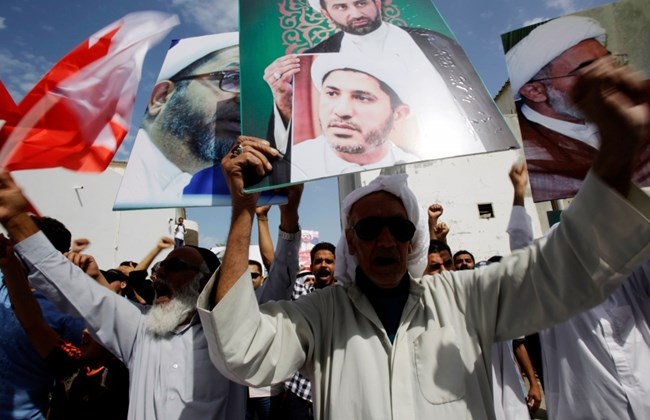In response to the 2011 pro-democracy movement, Bahrain, with the help of Saudi Arabia, suppressed the protests and accused Shia Iran of meddling in Bahraini affairs, giving the protests a decidedly sectarian cast. On March 8, 2016, however, a group of 39 Bahraini Shia clerics insisted that there had never been a call for sectarianism by the majority Shia community; rather they called for equality in Bahrain. Their statement said, “There was never, and there is not today, a demand by the people or the Ulema for a sectarian state … let alone a one-sect state”.
Bahrain’s government has previously used the specter of Iranian influence and “meddling” to suppress dissidents and target opposition figures who are predominately Shia. Government officials increasingly paint protests in sectarian terms instead of addressing the real grievances. Bahraini officials have gone on to identify demonstrators and dissidents as foreign agents and call them “terrorists and extremists.” From this line or argument, Bahrain’s Foreign Minister can say, as he did on February 9, that there are no political prisoners in Bahraini prisons, only imprisoned terror convicts. Calling them terror convicts, Bahraini officials have invoked the 2006 anti-terror law, which human rights groups have argued undermines basic freedoms, to sentence protestors, majority Shia, to decades and life in prison. With 39 Shia clerics making a statement disavowing sectarianism, it remains to be seen whether the Government of Bahrain will work towards de-escalating its sectarian rhetoric and addressing the grievances of the Bahraini people.
Tyler Pry is an Advocacy Intern at Americans for Democracy & Human Rights in Bahrain
Photo courtesy of AP





